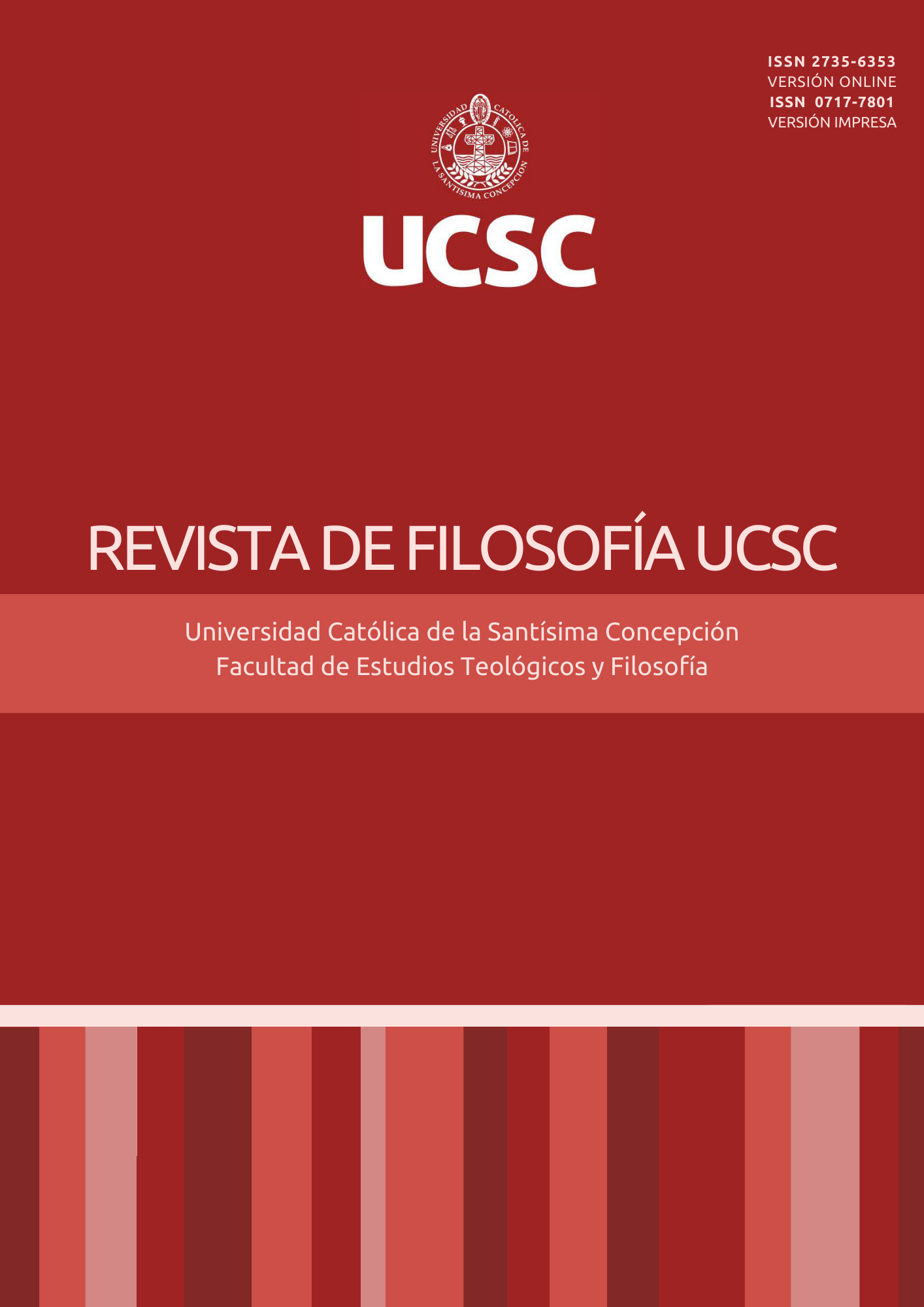Technologies of the self in the care of oneself: towards the conquest of inner freedom in the public-political scenario
Main Article Content
Abstract
The paper is about the help of self-technologies for building the ethical principles of human beings in public and political action. Also, we want to submit a reflection on how the person can overcome noetic and existential superficiality, through anthropological, epistemological, and technological tools, for the inner conquest of himself. In summary, this writing aims to demonstrate how self-technologies help shape inner freedom and motivate toward taking care of yourself on the public and political stage. The main question is: how can the technologies of the self, expand the inner freedom of the contemporary human being whose impact is felt in public and political action? It is argued that the exercise of the technologies of the self is very important for the construction and formation of a subject of truth and action, which impacts public life and political action so that in this way, overcome the devastating effects of noetic and existential superficiality on people who seek the conquest of inner freedom through self-care.
Article Details
Section

This work is licensed under a Creative Commons Attribution-NonCommercial 4.0 International License.
The Revista de Filosofía UCSC is an open access journal and does not charge for publication. In addition, it regulates its Copyright and access policy according to the Creative Commons Attribution-NonCommercial 4.0 International Public License (CC BY-NC 4.0), therefore sharing (reproducing and distributing the material in any medium or format) and adaptation (modifying, transforming, and creating from the material) is allowed as long as proper credit is given and the citation is included with the corresponding data. Moreover, it is not allowed to use the material for commercial purposes.
How to Cite
References
Arendt, H. (2002). La vida del espíritu. Barcelona, Paidós.
Arendt, H. (2010). La condición humana. Paidós.
Arendt, H. (2018). ¿Qué es la política? Paidós.
Baudrillard, J. (1978). Cultura y simulacro. Kairos
Baudrillard, J. (2018). La sociedad de consumo. Sus mitos, sus estructuras. Siglo XXI.
Bauman, Z; Donskis, L. (2015). Ceguera moral. La pérdida de sensibilidad en la modernidad líquida. Paidós.
Bauman, Z. (2005). Retos de la educación en la modernidad líquida. Gedisa
Bauman, Z. (2017a). Vida de consumo. FCE
Bauman, Z. (2017b). Vida líquida. Paidós
Bauman, Z. (2018). Amor líquido. Sobre la fragilidad de los vínculos humanos. Paidós.
Cassirer, E. (2012). Antropología filosófica. FCE
Castells, M. (2001). Galaxia Internet. Areté
Castells, M. (2006). La era de la información. La sociedad red. Siglo XXI
Debord, G. (2002). La sociedad del espectáculo. Pre-Textos
Duch, L. (2012). La religión en el siglo XXI. Siruela
Escudero, A. (2012). Guía de lectura de ser y tiempo. Herder.
Foucault, M. (2014). La hermenéutica del sujeto. FCE
Francisco, P. (2015). Carta encíclica Laudato Si´ sobre el cuidado de la casa común. Pontificia Universidad Javeriana
Gadamer, H. (1998). Verdad y método II. Sígueme
Habermas, J. (2005). Facticidad y validez. Sobre el derecho y estado democrático de derecho en términos de teoría del discurso. Trotta
Habermas, J. (2009). ¡Ay, Europa! Trotta
Habermas, J. (2017). Ciencia y técnica como ‘ideología’. Tecnos
Hegel, G. (2019). Fenomenología del espíritu. FCE
Heidegger, M. (2002). Serenidad. Serbal
Heidegger, M. (1976). Sobre el fundamento. Herder.
Heidegger, M. (2012). Ser y tiempo. Trotta.
Heidegger, M. (2018) El ser y el tiempo. FCE
Heller, A. (1998). Sociología de la vida cotidiana. Península.
Kant, I. (2018). Filosofía de la historia. FCE
Levy, P. (1999). ¿Qué es lo virtual? Paidós
Lipovetsky, G. (2017). La era del vacío. Anagrama
López, M. (01 de septiembre de 2022). Los científicos exploran la relación de cerebro y espiritualidad. La Vanguardia. https://www.lavanguardia.com/vida/20120130/54246824652/cientificos-exploran-relacion-cerebro-espiritualidad.html
McLuhan, M. (1996) Comprender los medios de comunicación. Las extensiones del ser humano. Paidós.
Nietzsche, F. (2012). La voluntad de poder. Gredos.
Ricoeur, P. (2009). Educación y política. De la historia personal a la comunión de libertades. Prometeo
Ricoeur, P. (2015). El conflicto de las interpretaciones. Ensayos de hermenéutica. FCE
Schneewind, J. (2009). La invención de la autonomía. Una historia de la filosofía moral moderna. FCE
Spadaro, A. (2014). Ciberteología. Pensar el cristianismo en tiempos de red. Herder.
Torralba, F. (2018). Inteligencia espiritual. Plataforma Actual
Tracy, D. (1997). Pluralidad y ambigüedad. Hermenéutica, religión, esperanza. Trotta
Velásquez, E. (2017). La virtualización en el escenario contemporáneo de la educación. Académica española
Velásquez, E. (2019). El problema fundamental de la hermenéutica existencial bíblica. Anales de Teología. 21 (2) 187-213
Velásquez, E. (2020a). El carácter simbólico de la revelación. Argumenta Bíblica Theologica. 1. (3). 7-21
Velásquez, E. (2020b). La crisis actual como posibilidad existencial para retomar la pregunta por el ser. Metanoia. (5), 131-156
Velásquez, E. (2020c). Pensar en el sentido de la vida es orar. Revista Filosofía UIS, 19(2), 55-73. https://doi.org/10.18273/revfil.v19n2-2020004
Velásquez, E. (2020d). Virtualización y existencia. La técnica en el ámbito general de la vida. Aporía. (20). 48-65
Velásquez, E. (2022). Hacia la emancipación de los sistemas ideológicos contemporáneos. Revista de filosofía UIS. 21(1), 19-40. https://doi.org/10.18273/revfil.v21n1-2022002
Verdú, V. (2009). El estilo del mundo. La vida en el capitalismo de ficción. Anagrama.
Žižek, S. (2017). Porque no saben lo que hacen. El sínthome ideológico. Akal.




